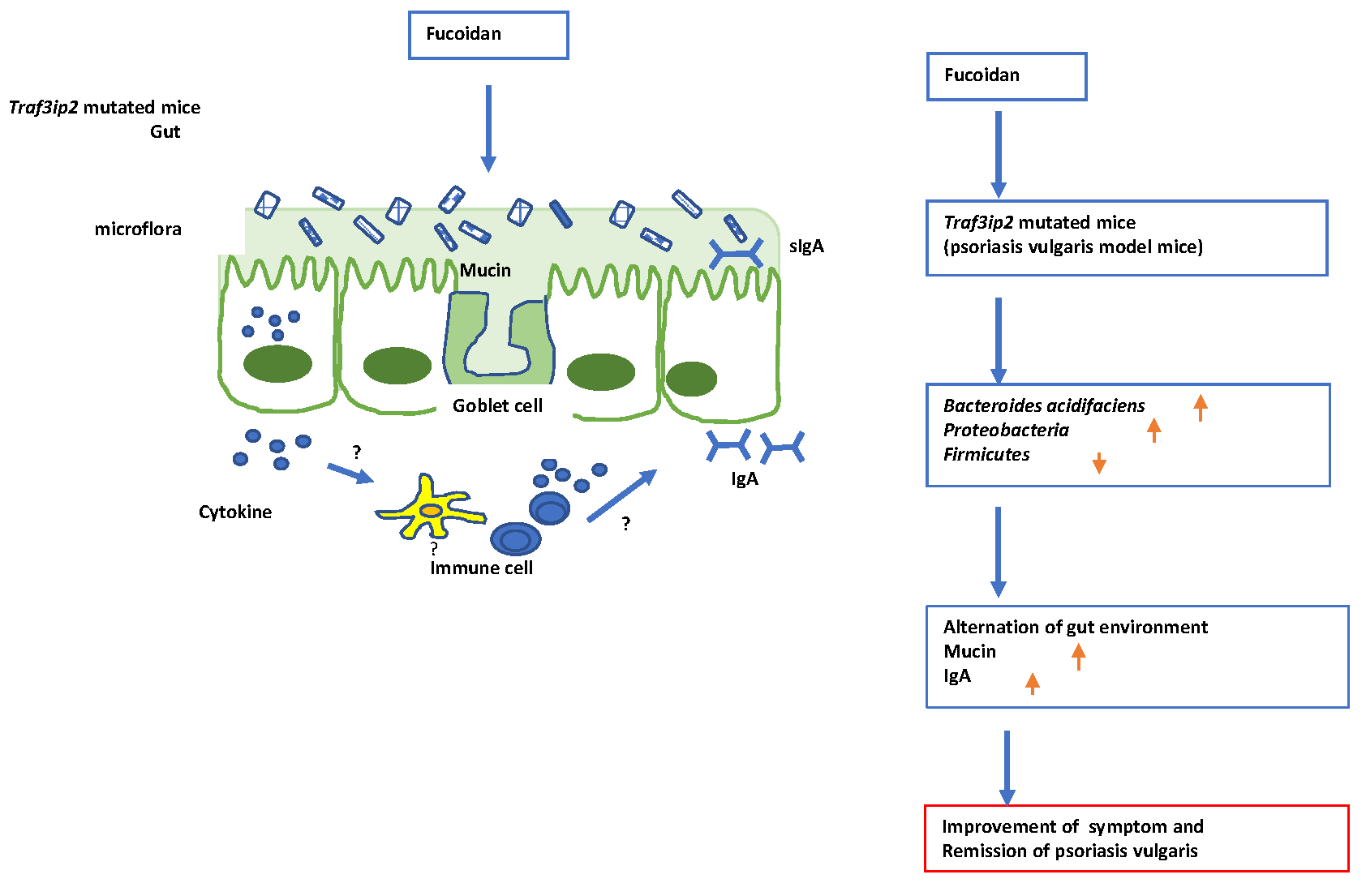In this blog, I want to talk about Fucoidan’s anti-inflammatory effect and Psoriasis and how Fucoidan helps Psoriasis.
In the article “Systemic Inflammation in Psoriasis: A guide for Dermatology Care Providers,” Psoriasis is a chronic autoimmune disease that affects more than 7 million adults in the United States. The symptoms generally include an epidermal plaque with erythema, induration, and attached silvery-white scales on the skin. In simple terms, Psoriasis is a skin condition that causes red, flaky, irritable patches on the skin covered with silvery scales. These patches usually appear on your elbows, knees, scalp, and lower back but can appear anywhere on your body.

Psoriatic plaques can be pruritic; illness visibility can cause embarrassment and stress and significantly negatively impact emotional health and productivity.
Many recent studies have clearly shown that Psoriasis is a systemic inflammatory disease. Many of Psoriasis’ major drivers are also associated with the set of causes of other common chronic inflammatory diseases. Therefore, patients with Psoriasis are at increased risk of comorbidities with inflammation.
Hence, I want to discuss how Fucoidan helps Psoriasis symptoms and offers a better solution. The fucoidan diet has relieved psoriasis symptoms on the face of inflamed mice and reduced scratches.
As explained, Psoriasis is a chronic immunologically inflammatory disease of the skin characterized by dry, silvery scales with a rash.
In the study of “Improvement of Psoriasis by Alteration of the Gut Environment by Oral Administration of Fucoidan for Cladosiphone Okamuranus” by Masanobu Takahashi et al., the severity of facial symptoms in inflamed mice was determined by phenotype using a scoring system. Will be evaluated. In this study, 1% fucoidan or 1% cellulose is administered by adding to the standard diet.
The facial skin of inflamed mice showed significant differences in symptoms between Fucoidan and the standard diet group.
Mice on a regular diet showed severe Psoriasis’s severe facial symptoms, while mice on a fucoidan diet improved facial symptoms after 21 days and managed to enter remission the following week. The standard diet group showed an increase in scratches within a specific time frame, while the fucoidan diet group showed a significant decrease in facial blemishes from 1st week to 56 days later. In the standard diet group, the mice with the highest PASI scores showed the most severe symptoms and the results of the most severe scratch tests.

On the other hand, the fucoidan-fed mice group’s symptoms decreased from 21 days to 63 days later and were significantly lower than those in the control group.
